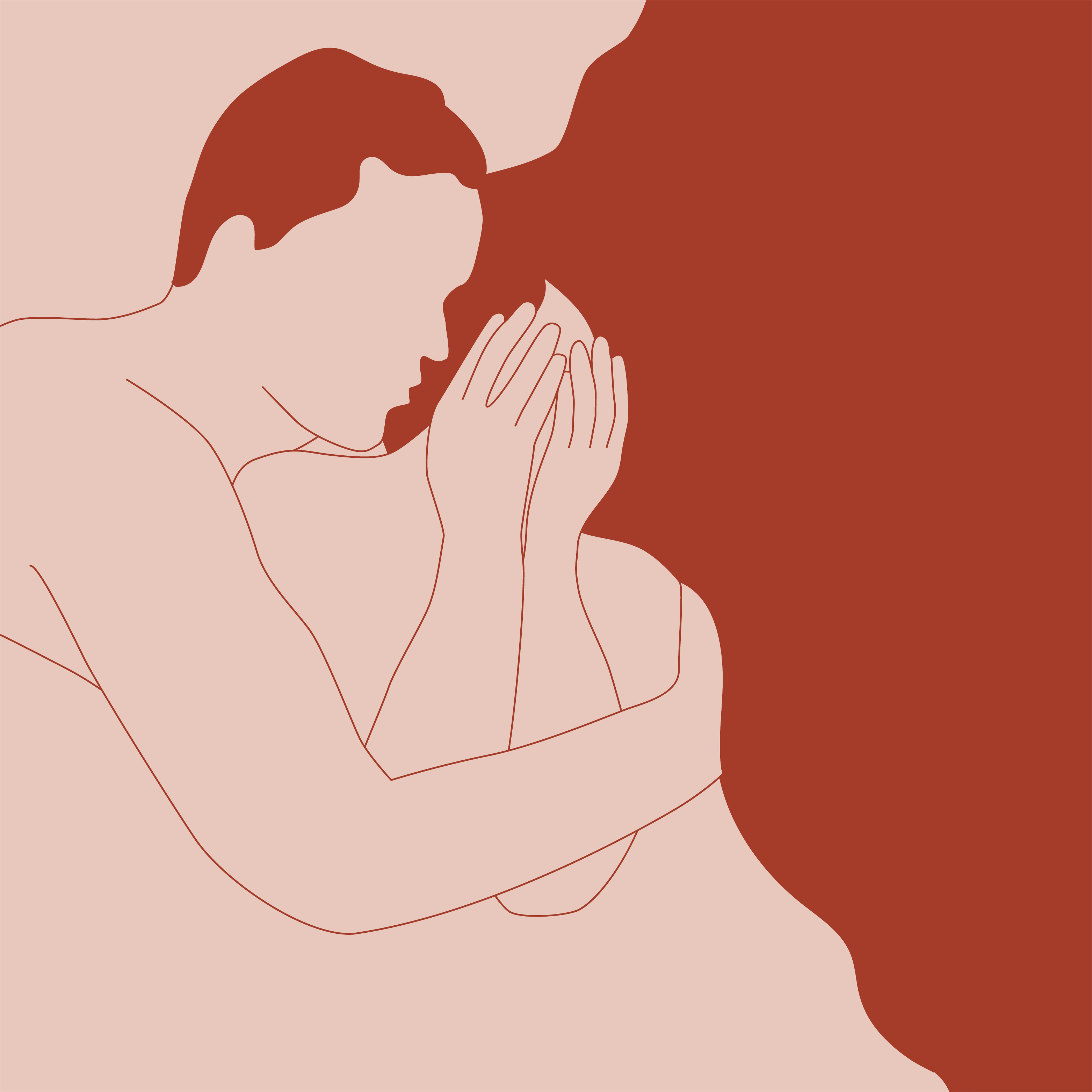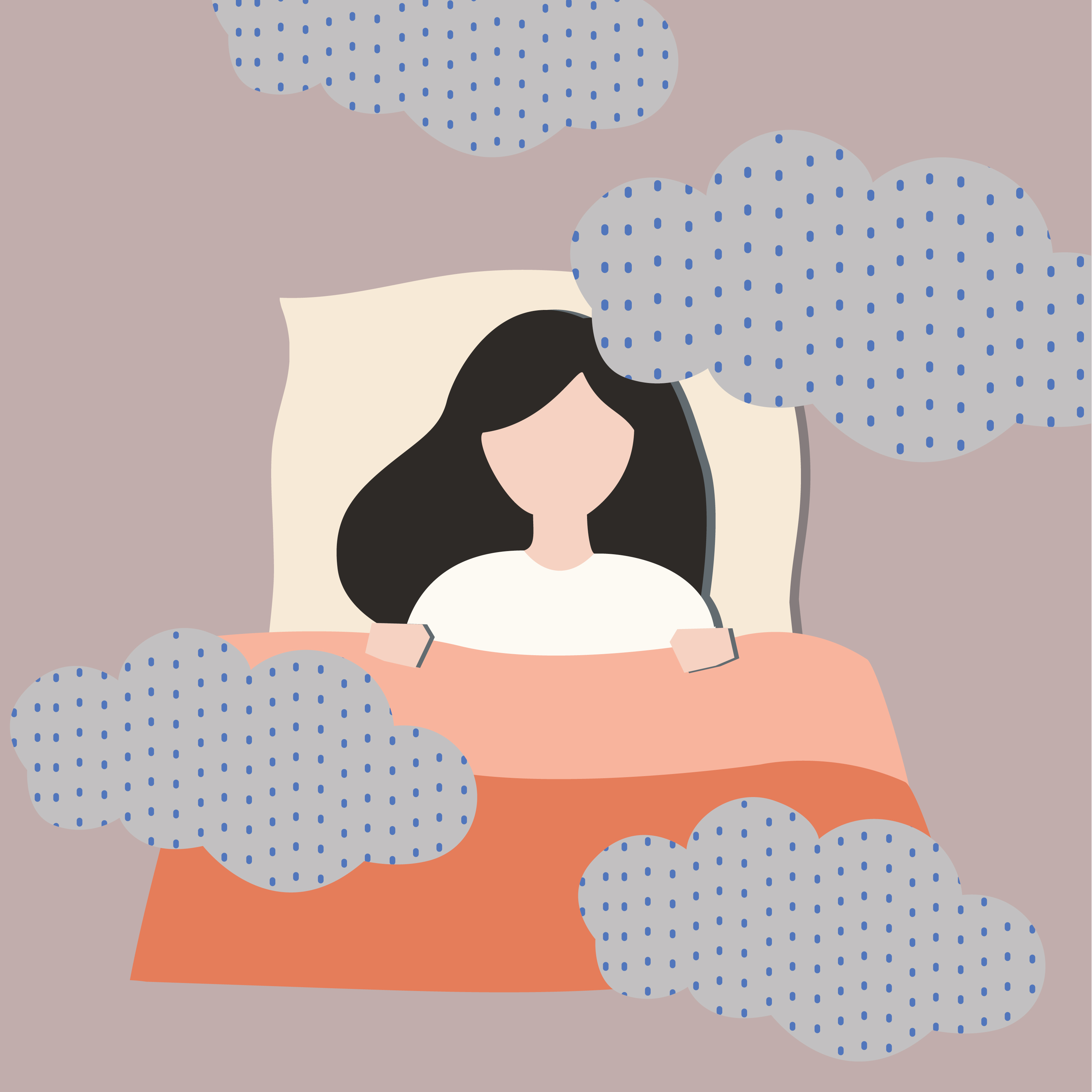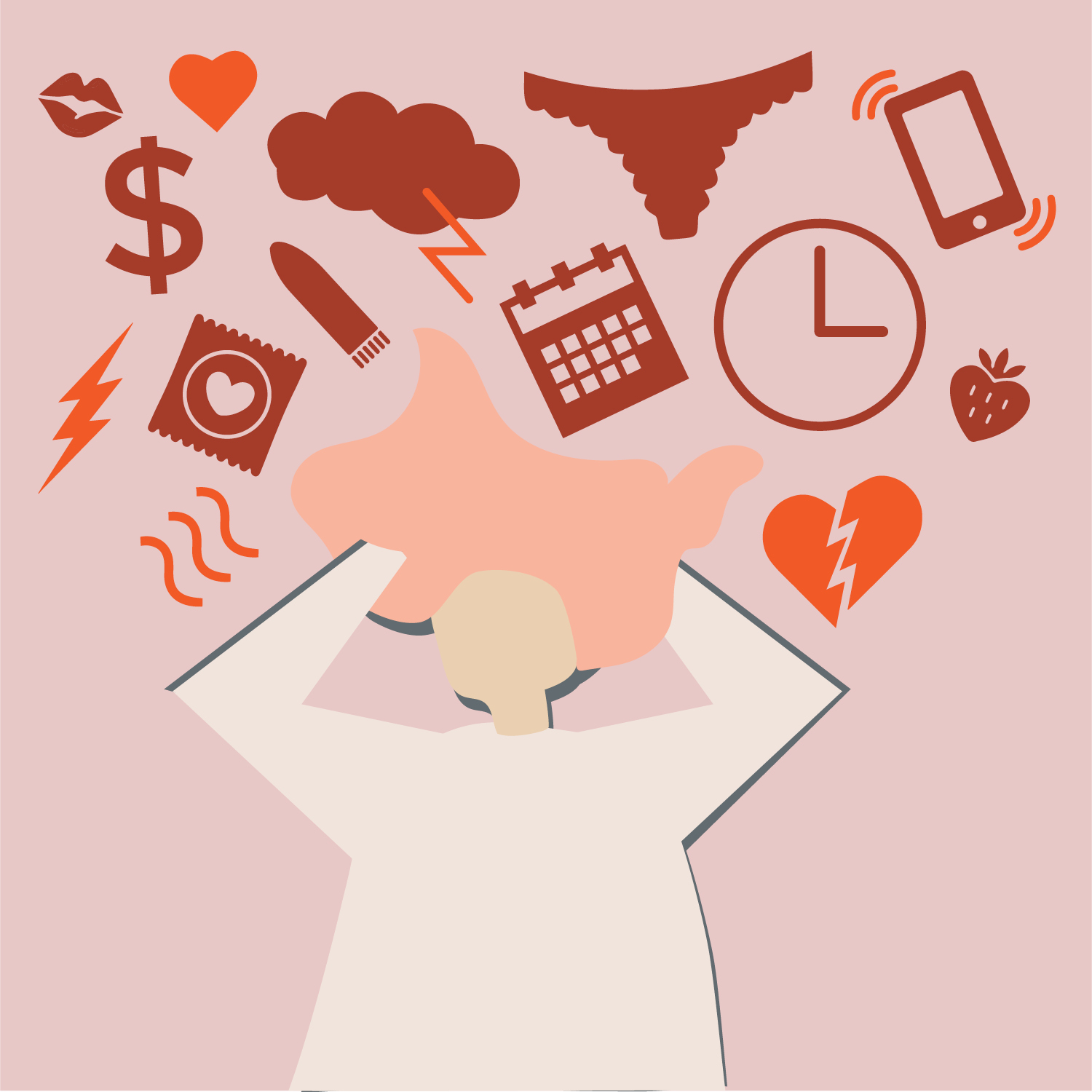Apr 14, 2022
IS IT PMS, OR PMDD?
If Your PMS Is Really Bad, It Might Not Be PMS
Every month, there is a moment. I’m racing through life as I always do, except instead of my usual mild irritation at inconveniences – ugh, my boyfriend didn’t tell me the milk ran out? – anything that goes wrong is a Big Huge Deal and my response is to either lie on the floor in the foetal position wailing, or to start dramatically texting essays of rage to whoever has wronged me in that moment.
That’s my PMS experience. As soon as my period arrives, I’m like “oh, that’s why I wanted to break up over the fact he forgot to take the recycling out”. I’m lucky – I get a little breast tenderness and some uncomfortable cramping the day before my period, but for the most part, PMS affects me emotionally, and even though it’s not exactly Fun Times Theme Park USA to feel overwhelmed by everythingggg during those few days, I know many women and period-havers deal with a lot worse.
If you have terrible emotional PMS symptoms, you might not be suffering from PMS. Welcome to PMDD, or Premenstrual Dysphoric Disorder. Essentially classified as a more severe version of Premenstrual Syndrome, PMDD is like that emotional response times one hundred (not literally, but you know what I mean. It’s no bueno). I wanted to know more about the difference, so I asked Naturopath Georgia Hartmann of Hormone Health Studio to explain it all to me.
“The main symptoms to look out for are feelings of anxiety, depression, increased irritability and anger,” Georgia explains, saying that PMDD can have a major impact on your life and should absolutely not be dismissed. Affecting one in twenty women and period havers, PMDD sufferers will often experience major mood swings, with some or all of these symptoms: a marked level of depression, feelings of hopelessness, anxiety or intense irritability. Georgia also says if you feel really “on edge” before your period, that can also be a sign of PMDD.
Obviously these aren’t fun to experience, but where PMS emotional symptoms can affect our lives, they aren’t as debilitating as PMDD. “People with PMDD often find they have a decreased interest in usual activities, difficulty concentrating, a marked lack of energy and other symptoms that are severe enough to interfere significantly with social, occupational, sexual, or scholastic functioning,” explains Georgia.
So the difference is, while PMS isn’t great, PMDD can totally throw your life into chaos. Every damn month.
The good news, according to Georgia, is that both PMS and PMDD can be treated. “I’ve seen it in my own clinical practice,” she says. “It comes down to supporting ovulation to balance oestrogen and progesterone (two hormones that can contribute to PMS and PMDD) and by reducing inflammation to support neurotransmitter function.”
Georgia’s advice is to start educating yourself on your hormones (you can follow her Hormone Health Studio tips here) and to see a specialist who can help you with improving stress, sleep, exercise, diet and nutritional requirements. It’s all about supporting the communication between the brain, the adrenal glands and the ovaries – an axis Georgia refers to as the hypothalamic-pituitary-adrenal-ovarian axis. She says this is where a naturopath can help. “Diving deep into managing stress and anxiety, prioritising 8 hours of good quality sleep, maintaining a daily exercise routine that feels good (even simply walking for 15 minutes), avoiding foods that cause bloating and low energy, and ensuring nutritional requirements are met are starting points,” she says, adding that herbal medicine can also assist, and a naturopath can guide you in this.
“You do not have to suffer from PMS and PMDD. There are many strategies we can implement to ensure your emotional and physical state are well supported.”
IS IT PMS, OR PMDD?
Blogs

EXPLORING PERIOD CARE IN CULTURES AROUND THE WORLD
Our TOM Talks panelist Sabina McKenna explores how different cultures around the world approach period care.

STOP APOLOGISING FOR HAVING YOUR PERIOD
Our TOM Talks panelist Mel Mason talks about the importance of not apologising for having your period.

STRESSED? NOT SLEEPING? TRYING TO CONCEIVE?
TOM Talk's panelist Georgia Hartmann discussed the links between stress, sleep and fertility.

STRESS AND HOW IT AFFECTS YOUR SEX DRIVE
Certified sex coach Georgia Grace is here to unpack the link between stress and sex.
Products